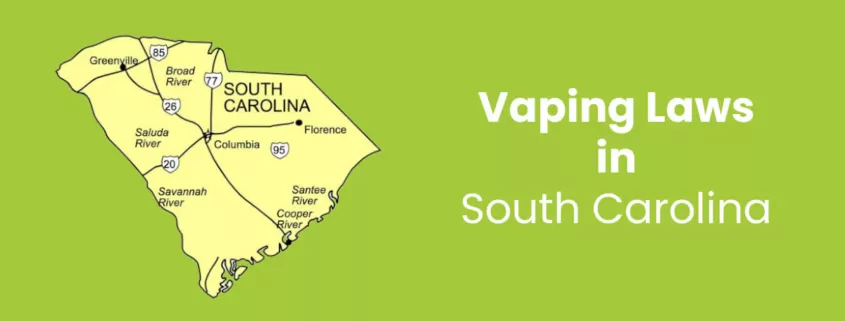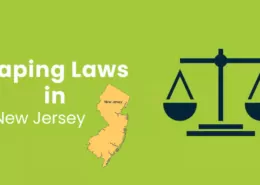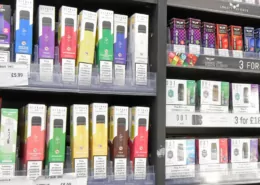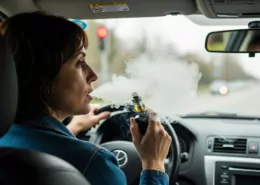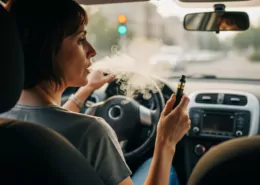Vaping Laws in South Carolina’s : A Comprehensive Guide 2025
From the historic streets of Charleston to the vibrant Grand Strand, South Carolina has developed a unique and evolving regulatory landscape for vaping products. As of 2025, with new legislation like Senate Bill 287 under consideration, the rules governing e-cigarettes, vape pens, and e-liquids are in a state of transition. This guide provides an in-depth look at South Carolina’s current vaping laws, unpacking the details of what’s legal, what’s changing, and what consumers, retailers, and manufacturers need to know to ensure compliance in the Palmetto State.
Is Vaping Legal in South Carolina?
Yes, vaping is legal for adults aged 21 and over in South Carolina. However, the state has implemented specific laws governing the sale, possession, and use of these products, with significant new regulations regarding product certification currently pending in the legislature.
The Legal Foundation of Vaping Laws in South Carolina
At the core of South Carolina’s approach to vaping is a clear legal definition that brings these products under tobacco control measures, alongside unwavering age limits for purchase and possession.
Defining “Electronic Smoking Device”
South Carolina law provides a broad definition to ensure comprehensive regulatory coverage. An “electronic smoking device” is defined as “any device that may be used to deliver any aerosolized or vaporized substance, including e-liquid, to the person inhaling from the device, including, but not limited to, an e-cigarette, e-cigar, e-pipe, vape pen, vapor product, or e-hookah”5. This definition ensures that nearly all vaping devices and consumables fall under state regulatory control.
Minimum Legal Sales Age: Strictly 21
South Carolina aligns with federal “Tobacco 21” law, making it illegal to sell, furnish, give, distribute, or provide tobacco products, alternative nicotine products, or vapor products to anyone under the age of 21. The state raised its minimum purchasing age from 18 to 21 to comply with the federal standard enacted in December 2019. Under South Carolina Code Section 16-17-500, it is also unlawful for any person under 21 to buy or possess these products.
Retailers are legally mandated to verify the age of any purchaser who appears to be under 30 years old by checking a valid, government-issued photo identification. Penalties for selling to minors are significant, with fines for first-time offenders ranging from $200 to $300, and subsequent violations resulting in fines between $300 and $500.

Where Vaping is Prohibited in South Carolina
One of the most important aspects of South Carolina’s vaping laws is the regulation of public use, which relies heavily on local governance.
The South Carolina Clean Indoor Air Act
South Carolina’s statewide Clean Indoor Air Act of 1990, which prohibits smoking in most public indoor places, has NOT been amended to include vaping products. This means there is no statewide ban that automatically prohibits vaping in all the same places where smoking is banned, such as restaurants, bars, and private workplaces. In areas without stricter local ordinances, individual businesses can choose to allow or prohibit vaping indoors.
However, state law does prohibit vaping in at least one specific type of location: ambulances.
Local Ordinances:
Because the state’s Clean Indoor Air Act does not cover vaping, many local municipalities and counties have passed their own, often stricter, ordinances. This has created a “patchwork” of regulations across South Carolina. Many communities have passed local laws that do prohibit vaping wherever smoking is banned. Cities that have enacted such comprehensive public vaping restrictions include:
- Aiken
- Columbia
- Denmark
- Hartsville
- Mount Pleasant
These local bans typically cover restaurants, bars, and other public establishments. The key takeaway for vapers is to always look for local signage and be aware of specific city or county ordinances, as these can be more restrictive than statewide provisions.
Ecigator is one of the well-known vape brands spun off from FM Technology Co., Ltd, it’s an ISO-certified disposable vape manufacturer for OEMs, ODMs, and OBM since 2010. The founder team comes from top firms with more than 10 years of experience in the vaping industry and has devoted thousands of hours to providing users with a better and better experience.
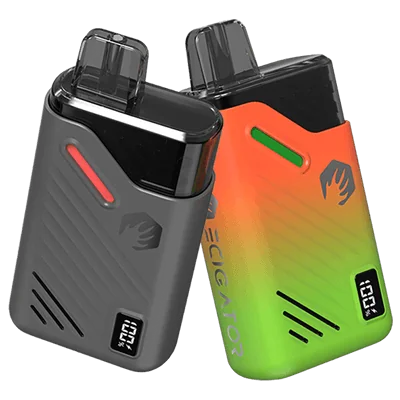
18K Disposable Pod Kit
Disposable Pod Kit – 18ml changeable pod with 650mAh rechargeable battery.
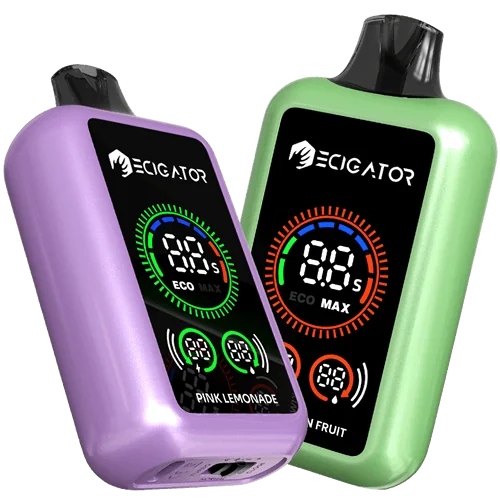
20K with Large Screen
20000 Puffs Disposable Vape with large screen. Normal and Boost working modes.
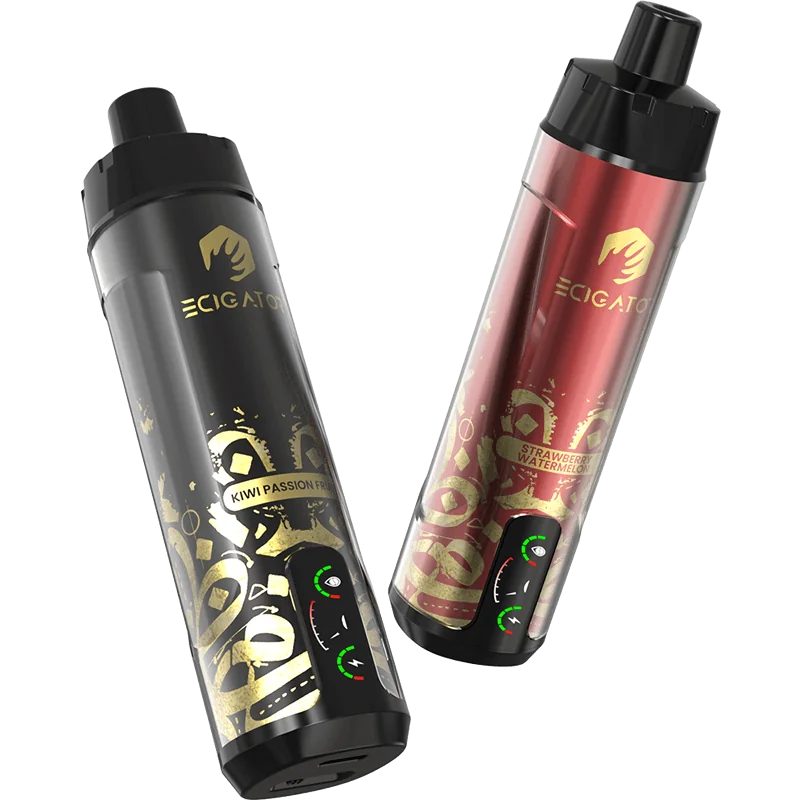
20K DTL Disposable
20K Puffs DTL(Directly to Lung) disposable vape with airflow control and screen.
Selling Vaping Products in South Carolina
The sale of vaping products in South Carolina is a regulated activity, with specific requirements for licensing and sales practices.
Retailer Licensing: A State of Transition
South Carolina’s licensing requirements for vaping retailers are currently in a state of transition. Traditionally, the state has required cigarette and tobacco product licenses for certain businesses, such as wholesalers and vending machine operators, at no cost from the South Carolina Department of Revenue. However, manufacturers, wholesalers, and retailers who distribute and sell only vape and ENDS products have not historically been required to obtain these specific tobacco licenses. Instead, they operate under general retail licenses and must notify the Department of Revenue of their tobacco/vape sales, with failure to do so potentially resulting in fines up to $2,000.
Recent legislative proposals have sought to establish more comprehensive licensing requirements specifically for vaping products, including annual renewal fees and enhanced employee training requirements.
Sales Practices and Product Requirements
- Vending Machines: Vending machine sales of vaping products are permitted but heavily regulated. They may only be located in establishments open exclusively to individuals 18 years or older (note: this age may be superseded by the 21+ purchase age in practice) or in locations where the machine is under continuous control by an employee and can only be operated remotely before each purchase.
- Child-Resistant Packaging: E-liquid containers that are not sealed and intended to be opened by consumers must be sold in child-resistant packaging and include appropriate warning labels as prescribed by federal regulations.
- Online Sales: Online sales are permitted but must employ age verification through an independent, third-party service to establish that the purchaser is at least 18 years old (in practice, 21 due to federal law). Delivery methods must also require a signature from a person of legal age.
Taxation of Vaping Products
As of mid-2025, South Carolina does not impose a specific state excise tax on vaping products, unlike many other states. Vaping products are subject to the standard state sales tax (currently 6%, plus any applicable local taxes), but they are not taxed at a higher “sin tax” rate like traditional cigarettes. This lack of a specific vaping tax has been a topic of legislative debate, but no such tax has been enacted to date.
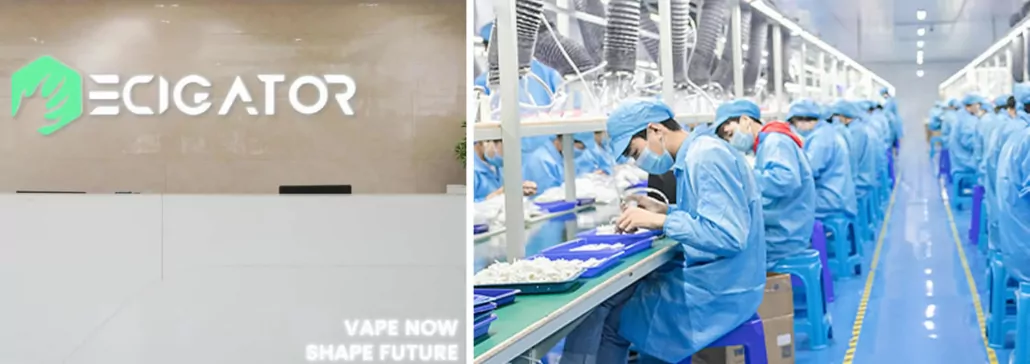
ECIGATOR
Ecigator is one of the well-known vape brands spun off from FM Technology Co., Ltd, it’s an ISO-certified disposable vape manufacturer for OEMs, ODMs, and OBM since 2010. The founder team comes from top firms with more than 10 years of experience in the vaping industry and has devoted thousands of hours to providing users with a better and better experience.
The PMTA Registry System in South Carolina
The most significant potential change to South Carolina’s vaping landscape is Senate Bill 287 (S.287), which would create a state-level PMTA registry system for approved vaping products.
Mandatory Retailer Licensing
This legislation, which passed the Senate with strong bipartisan support (38-2) in March 2025, would fundamentally alter how vaping products are regulated. If enacted, it would:
- Require all vaping products sold in South Carolina to be certified by the state’s Attorney General, starting August 1, 2025.
- Establish a publicly accessible directory of approved products. Only products on this list would be legal for sale after October 2025.
- Target the flood of illegal, flavored disposable vapes imported from China, which often feature youth-appealing names and designs (e.g., “bubble gum,” “cotton candy,” or disguised as school supplies).
- Impose penalties, including fines of $1,000 per day for each unauthorized product remaining on store shelves for manufacturers or distributors, and subject retailers to seizure of non-compliant products.
Current Status: Delayed in the House
Despite passing the Senate, the bill has faced delays in the House, with debate adjourned until January 2026. The bill has been met with opposition from consumer advocacy groups like CASAA, who characterize it as a “Big Tobacco Protection Act” that would benefit large tobacco companies whose products have already received FDA authorization, while harming independent vape shops.
Conclusion:
South Carolina’s vaping laws in 2025 represent a regulatory framework in transition. If this PMTA registry law is eventually passed by the House and signed into law, it will dramatically restrict the variety of products available, effectively creating a de facto ban on most flavored and disposable vapes that lack FDA authorization. For consumers, retailers, and manufacturers, closely monitoring the progress of this legislation is paramount to understanding the future of the vaping market in South Carolina.
References
- Justia Law – South Carolina Code § 16-17-500 (Sale or purchase of tobacco products)
- Tobacco Tax Refund – South Carolina Tobacco Tax Laws
- Justia Law – South Carolina Code § 12-21-660 (License required for engaging in tobacco business)
- SC Attorney General – Cigarette and Tobacco Tax Manual (2011 – PDF)
- SC DOR – Business Tax Application (L-915 PDF)
- HHC Vapes: What Are They & Are They Safe? - July 31, 2025
- Cannabis and Vape Shop Workers Rank Happiest in Nation - July 31, 2025
- Richmond, VA, Restricts New Vape & Tobacco Shop Locations - July 31, 2025

